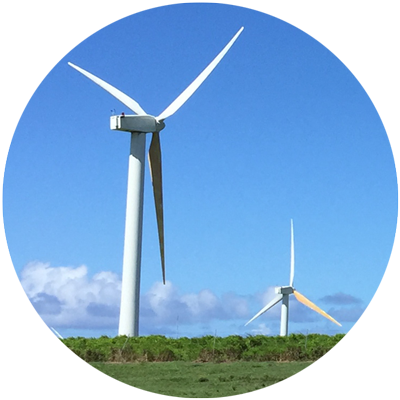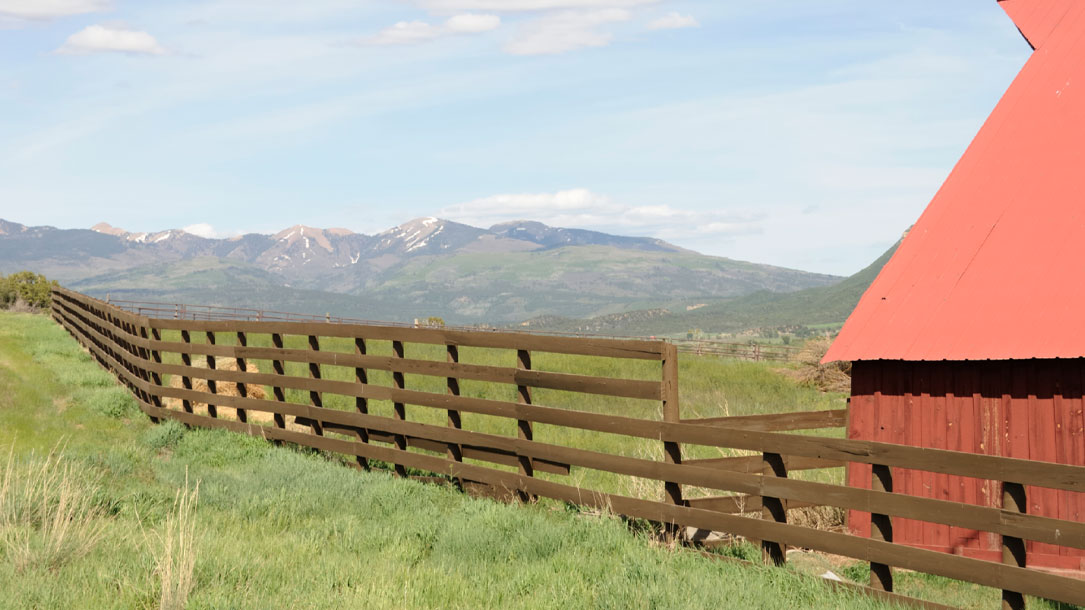
We’re halfway there; Montana joins U.S. Climate Alliance
Last week, Montana Governor Steve Bullock announced his commitment to join the US Climate Alliance (USCA), bringing the total to 25 states who have made the pledge since the Alliance was formed just two years ago.
With Montana’s addition, the USCA now represents 55% of the U.S. population, an $11.7 trillion economy, and 40% of U.S. greenhouse gas emissions…
American Farmland Trust proudly joined the USCA as an Impact Partner in June 2019. As an Impact Partner, AFT lends its technical expertise to help increase the volume of carbon stored in ecosystems; reduce losses of already-stored carbon; and decrease greenhouse gas emissions, specifically sharing policy guidance and implementation strategies for climate-smart practices on croplands and rangelands.
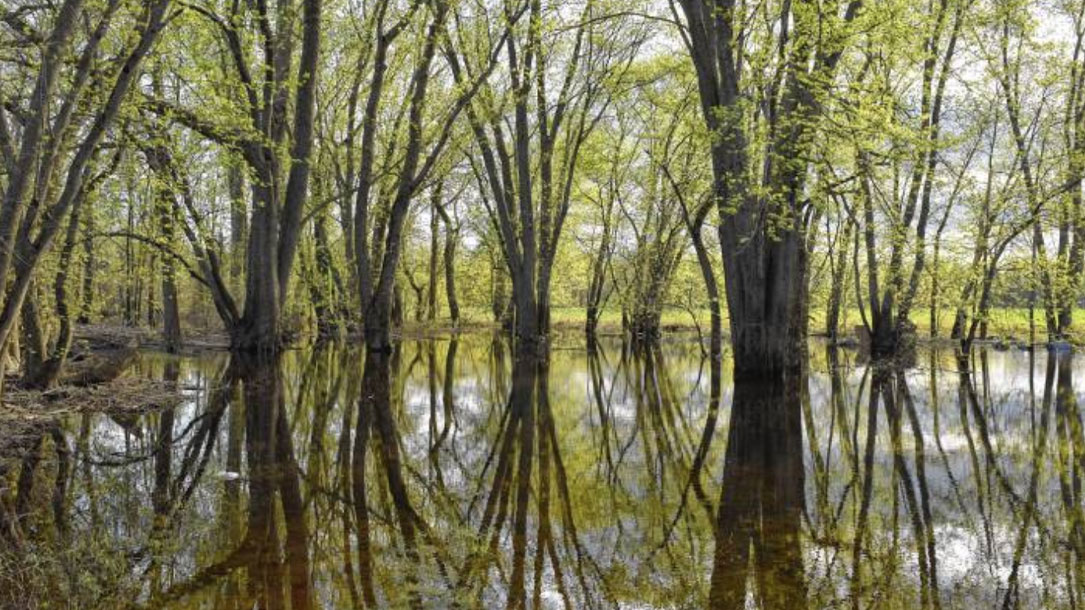
Kestrel Land Trust featured: Land conservation is part of the climate change solution
“When you think about strategies to prevent more severe impacts [of climate change], protecting land from development may not be the first action that comes to mind. The science is clear that we must reduce our fossil fuel use and curtail other sources of greenhouse gas emissions.
Conserving and restoring the world’s forests, grasslands and wetlands, however, is also a critical tool for countering the effects of climate change. Every year, globally millions of acres of forests are cleared for development, grazing or crops. When this happens, most of the organic carbon stored in the original forest is released into the atmosphere…”

King Arthur Flour calls for action
“King Arthur Flour works with mills and farmers across the nation to supply home bakers everywhere with some of the finest flours and baking supplies available. It takes a lot of time and energy to transport our products to stores and kitchens across the country, and we are acutely aware of the impact all that transportation has on the environment.
In 2016, the transportation sector surpassed the electric power sector to become the largest emitter of greenhouse gas emissions in the U.S. In fact, the transportation sector is responsible for nearly a third of all U.S. Greenhouse gas emissions—contributing to climate change and air pollution, and exacerbating public health concerns…
Therefore we were pleased to see Gov. Phil Scott announce that Vermont will join eight other states and the District of Columbia this year to collaborate on developing a regional, market-based policy to reduce greenhouse gas emissions and modernize our transportation system…”

Taking steps to “walk the walk”: Peconic Land Trust makes changes
Peconic Land Trust’s (PLT) values and goals reflect their organization’s desire to protect their environment and appreciate the natural resources of Long Island, New York. Over the last several years, PLT has taken steps to minimize their carbon footprint by making their offices more efficient and by integrating “green principles” throughout the organization.
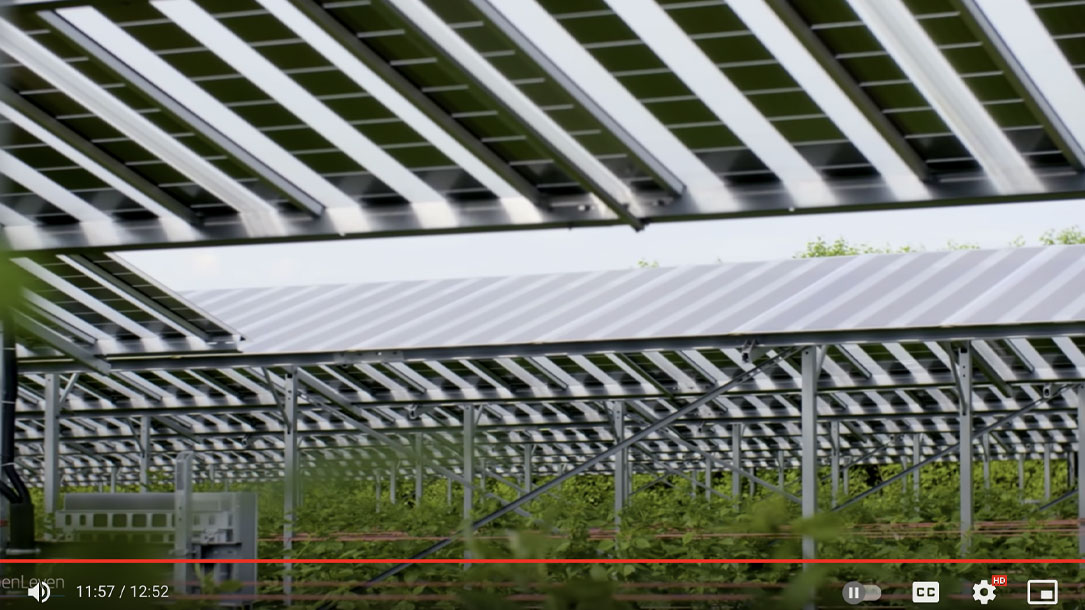
Agrivoltaics: Solar panels on farms could be a win-win
Many local food advocates argue that an inadequate portion of the food consumed in Massachusetts is grown there. The short growing season along with high costs for labor and land can make farming in Massachusetts a financially precarious proposition.
Some advocates say that dual-use solar installations have the potential to ease a number of these problems at once…

Do you have questions about divestment and socially responsible investment?
The Land Trust Alliance provides some thoughtful information on their climate change website about divestment and socially responsible investment. You may find it helpful when discussing whether this is a path your land trust wants to take as a moral, ethical, and financial statement.
As the financial world looks at the risks associated with fossil fuels, others are considering different investment strategies, as noted in this article earlier this year from Forbes.
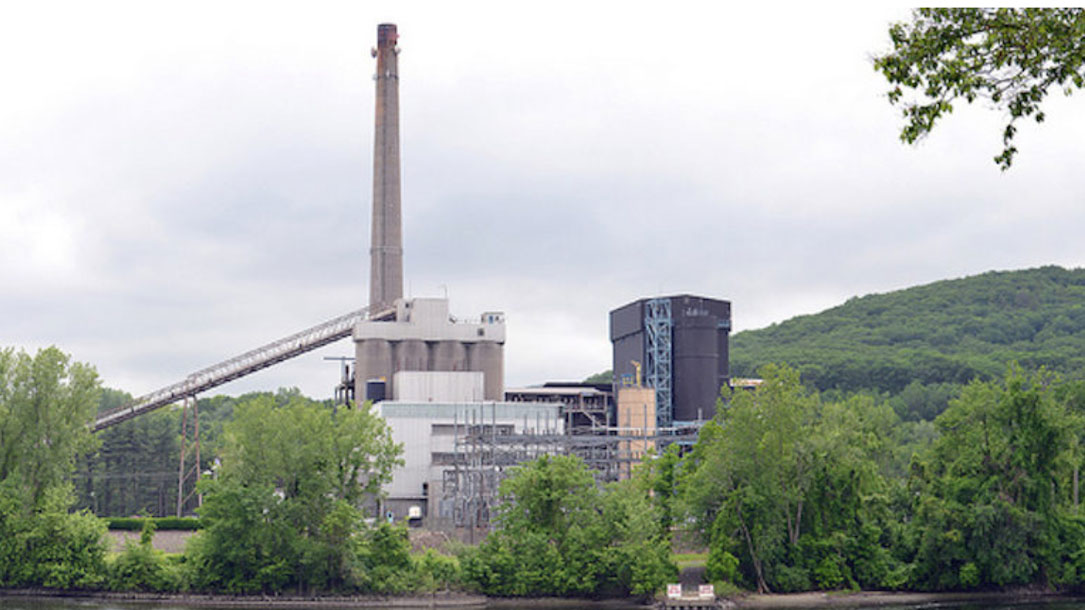
Example: Kestrel Land Trust takes action against climate change with fossil fuel divestment
Kestrel’s mission to conserve and care for forests, farms, and riverways in the Pioneer Valley protects the future health of our planet. They state that “the work we do is impacted by—and has an impact on—the crisis of climate change that is now defining our future. The overwhelming scientific consensus is that the burning of fossil fuels is warming our planet and threatening our global life support systems.
That’s why Kestrel’s Board of Trustees voted to eliminate equity holdings in companies owning fossil fuel reserves in all of the long-term endowment accounts that support their work…”
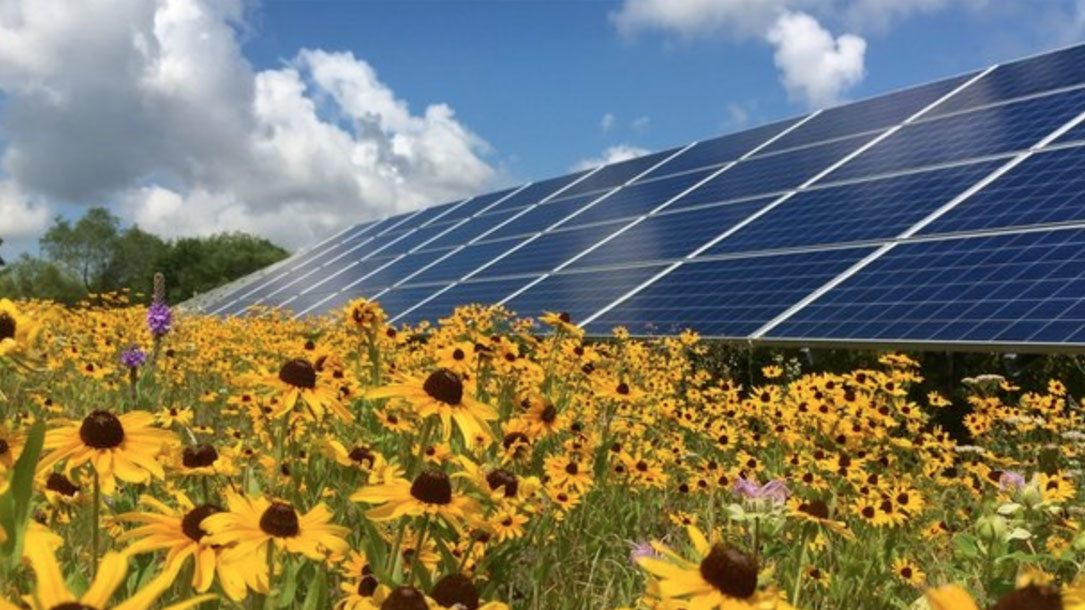
Pollinators, solar, and your land trust
There’s a major opportunity to help slow down climate change and ramp up pollinator gardens with community and large-scale solar.
The timing is critical given new research is documenting that climate change is decimating pollinators of all kinds. As one article notes, “it’s a great year for monarch butterflies [but] climate change means that won’t last.”
Limiting global warming to 1.5°C (and thus saving countless species) would require “rapid and far-reaching” transitions in land, energy, industry, buildings, transport, and cities. Global net human-caused emissions of carbon dioxide (CO2) would need to fall by about 45 percent from 2010 levels by 2030, reaching ‘net zero’ around 2050. This means that any remaining emissions would need to be balanced by removing CO2 from the air.
The good news is that solar pollinator farms can make a big difference. That’s also good news to landowners and farmers who could benefit from the regular income that solar payments provide. For many, that might make the difference between selling out or staying on the land…

Neighborhood Sun to host free event at Eastern Shore Conservation Center
Increasingly, land trusts are finding ways to help their community connect the dots on why solar is related to their conservation work and how to sign up for local, often community, solar.
This past summer, the Eastern Shore Land Conservancy hosted a program with a local solar provider at their office. You can see their announcement here. Perhaps your local land trust could do this as well.

Five reasons farmers love wind & solar
If we are going to reduce coal, oil, and natural gas — to save thousands of species from extinction and avoid significant agricultural damage and loss due to extreme weather – plus find ways to make family farms viable in a changing climate, we are going to have to rethink how solar and wind are compatible with our conservation and community goals.
Check out five reasons why farmers often embrace wind and solar. Land trusts can help communities understand that the alternative to gearing towards renewables is often going out of business, selling for development, and family economic stress.



